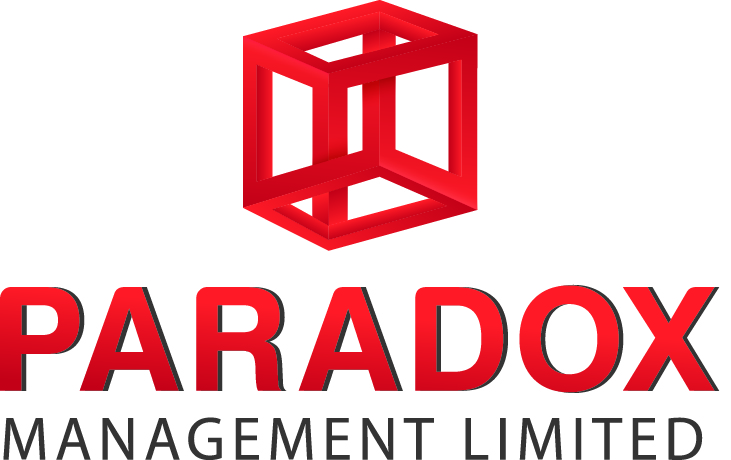Introduction
In the financial industry, especially for licensed corporations like securities firms, three numbers are particularly important – paid-up share capital, net asset value, and liquid capital. These three numbers are like the foundation, walls, and cash reserves of a house, all essential. Today, we’ll use simple language and examples to help everyone understand how these three concepts affect the health of financial institutions, and the relationships between them.
Paid-up Share Capital: The Foundation of a Company
Restaurant Example
When Mr. Zhang opened the “Delicious House” restaurant, he and other shareholders contributed a total of 1 million dollars. This 1 million is the restaurant’s paid-up share capital, the money that shareholders have actually paid. Whether the restaurant makes or loses money afterward, this figure remains 1 million on the books, unless the company deliberately changes it (such as through capital increases or share buybacks).
Financial Institution Example
When “Prosperity Securities” was established, investors contributed a total of 50 million dollars. This money is the securities firm’s paid-up share capital, the capital base registered with regulatory authorities. Regulators require this figure to reach a certain level before certain types of business can be conducted.
Net Asset Value: The Actual Value of a Company
Restaurant Example
After “Delicious House” opened, they purchased kitchen equipment, tables and chairs, renovations, and had some cash as working capital. If we calculate:
- Total assets: 1.2 million (equipment, renovations, inventory, cash)
- Total liabilities: 300,000 (bank loans, accounts payable)
- Net asset value = 1.2 million – 300,000 = 900,000
This figure changes with the restaurant’s operating conditions. If the restaurant makes money, the net asset value increases; if it loses money, the net asset value decreases.
Financial Institution Example
“Prosperity Securities” has assets including offices, equipment, investments, receivables, and bank deposits, totaling 80 million dollars. Liabilities include loans, accounts payable, and client deposits, totaling 30 million dollars.
- Net asset value = 80 million – 30 million = 50 million dollars
Liquid Capital: The Safety Cushion of a Company
Restaurant Example
If “Delicious House” were to calculate liquid capital (generally not required for restaurants, this is purely for example), they would calculate adjusted current assets minus current liabilities:
- Cash: 300,000 (counted in full)
- Inventory: 100,000 (might only count half, as it’s not immediately convertible to cash)
- Current liabilities: 100,000
- Liquid capital = 300,000 + 50,000 – 100,000 = 250,000
Financial Institution Example
For licensed corporations like “Prosperity Securities,” liquid capital is a key regulatory indicator:
- Bank deposits: 35 million (counted in full)
- Receivables from clients: 15 million (might be discounted, e.g., counted at 80%)
- Current liabilities: 20 million
- Liquid capital = 35 million + 12 million – 20 million = 27 million
The Securities and Futures Commission requires securities firms to maintain a certain level of liquid capital to ensure sufficient liquidity to handle market fluctuations and client withdrawals.
Relationships Between the Three
Paid-up Share Capital and Net Asset Value
Paid-up share capital is the money initially invested, while net asset value includes paid-up share capital plus (or minus) the company’s accumulated profits (or losses). So net asset value = paid-up share capital + accumulated profits (or – accumulated losses).
Like in the “Delicious House” example, the paid-up share capital is 1 million, but the net asset value is only 900,000, indicating the restaurant has lost 100,000.
Net Asset Value and Liquid Capital
Net asset value is the overall value of the company, including long-term assets; while liquid capital primarily focuses on liquidity and short-term solvency. Like “Prosperity Securities” with a net asset value of 50 million, but liquid capital of only 27 million, because some assets are long-term investments not counted in liquid capital.
Paid-up Share Capital and Liquid Capital
Paid-up share capital is a long-term stable source of funding. Increasing paid-up share capital usually increases liquid capital (because it increases cash). Conversely, if a company uses liquid capital to buy long-term assets, liquid capital decreases, but paid-up share capital doesn’t change.
Conclusion
These three numbers are very important for licensed corporations:
- Paid-up Share Capital is the initial investment, representing shareholders’ commitment
- Net Asset Value reflects the company’s actual value, including operating results
- Liquid Capital is a safeguard for daily operations, ensuring sufficient liquidity for unforeseen circumstances
Understanding the relationships and impacts of these three concepts is very important for financial institution management, investors, and regulators. It’s like different indicators in a physical examination, collectively reflecting the health of the business.
Whether opening a restaurant or operating a securities firm, these three financial indicators are key to assessing business stability. The difference is that financial institutions face stricter regulatory requirements, especially regarding liquid capital, as this concerns investor fund safety and market stability.
Latest Licences for Sale!
LCS0007 / Type 1 & 4 License / $1.65M / $4.3M NAV / Central PI Advisory Firm
Key Points: Major Selling Points: Other Details: For more information, please WhatsApp 93472064. Paradox Management Limited is representing the seller and the listed price of $1.65M includes Paradox’s commission. Note: These details are for reference only and may deviate significantly from the actual company. View with caution.
SOLD:IB0015 / Insurance Broker License / General & Long Term Business (including Linked Long Term Business) / Historical FYP US$3.2M+ / Strong Insurance Company Relationships
Key Points: Major Selling Points: Other Details: For more information or to engage with the seller, please WhatsApp 93472064. Paradox Management Limited is representing the seller and the price shown includes Paradox’s commission.
LCS0080 / Type 1,4,9 License / $4.5M / NAV $4.5M / NO LICENSE CONDITIONS with HSBC & CITIC Bank Accounts
Key Points: Major Selling Points: Other Details: For more information, please contact via WhatsApp: 93472064. Paradox Management Limited is representing the seller and the price shown includes Paradox’s commission. Please note: These details are for reference only and may deviate significantly from the actual company. View with caution.
LCS0079 / Type 1, 4, 9 License / $2,000,000 + $6,600,000 NAV / No Trading Rights, No Client Assets, Long-Established Company
Key Points: Major Selling Points: Other Details: For more information or to engage with the seller, please WhatsApp 93472064. Paradox Management Limited is representing the seller and the price shown includes Paradox’s commission. ⚠️ Note: These details are for reference only and may deviate significantly from the actual company. View with caution.
Latest Licences wanted!
BB0080 | SFC Type 1 or 1,4 License | Budget: 2M HKD
💼 Established mainland Chinese brokerage firm🏦 Specializes in options and margin trading🌐 Seeking to expand into Hong Kong📋 License required: SFC Type 1 or Types 1 and 4💰 Budget: 2 million HKD📈 Commission: 800,000 HKD markup requested Other Details: No current physical presence in Hong KongLooking to acquire an SFC licensed company For more information,…
BB0066 | SFC 1,4,9 | Budget 2.8M
🔍 Opportunity Alert: SFC Licensed Corporation Sought A mainland private equity fund is on the lookout for an SFC licensed corporation with Types 1, 4, and 9 licenses. This is a unique chance for sellers in the financial sector! Key Details:🏢 Licenses: SFC Types 1, 4, and 9💰 Budget: 2.8M HKD📈 Commission: 800,000 HKD markup…
BB0061 | 🏛️ License: SFC Type 1 | 💰 Budget: HK$2,500,000
Major Points about the buyer: 📊 SFC Type 1 license required💼 Trading Right needed📈 Margin trading capability preferred🕰️ Company history: 5+ years💰 Budget: HK$2,500,000 Other Details: Buyers include major shareholders of listed companiesReady for immediate SPA signing and deposit paymentWilling to cover transition period operational costsPrefer current RO to stay onCompany name must include “Securities”Buyers…
Paradox Management Limited
Paradox Management Limited, established in 2010 in Hong Kong, specializes in vocational training and licensing support for the finance, banking, and insurance sectors. The company offers personalized training programs, including private sessions and group classes, as well as access to comprehensive exam question banks. Additionally, Paradox Management Limited assists with regulatory compliance, the acquisition and sale of financial entities, and obtaining Money Lender Licenses. Catering primarily to small financial institutions, the company is known for its deep industry expertise, client-focused approach, and proven success in helping professionals excel in their careers.

Contact Us
WhatsApp: +852 5512 2462
Phone: +852 2110 9644
Fax: +852 2111 9644
Email: [email protected]
Wechat: hk2cexam
